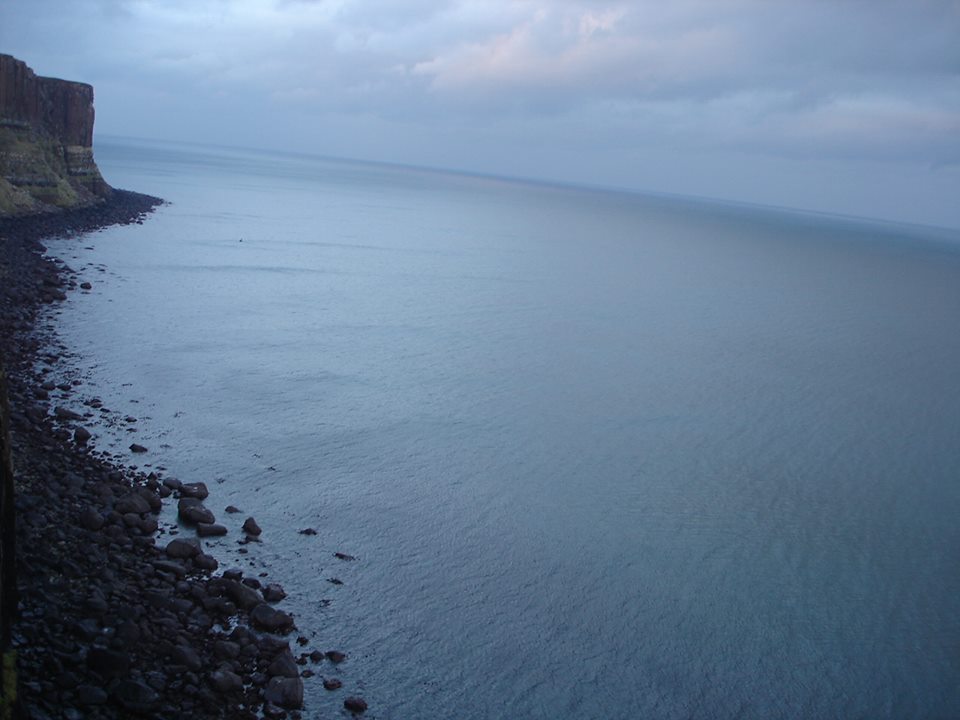A PROJECT OF EDUCATION-9.
28/03/2018
9.
Factors which are not directly connected with educational, psychology or philosophy and the process of a rational training of the human individual, such as the intricate activities of the internal world of man, are not, however, unimportant, at least from the point of view of knowing oneself or anyone for the matter of that. In our analysis of the process of descent in the cosmological set-up, we ended with the cosmic event at the point of a large physical universe concluding in separation at the grossest level of matter or the Earth-principle.
Up to this level is the state of cosmic existence and there are no individuals here. But scriptures like the Upanishads, the Epics and the Puranas, and cosmological narrations such as those we have in the Holy Bible, speak of a fall of man, and philosophers like Leibniz speak of what they call 'a constitutional appetition' of individuality. All this is, perhaps, intended to convey that what we call the world of experience is a network of reactions set up by individuals in respect of the universe from which they have been severed (which is the fall spoken of) and which they consider as an external object to their own mental awareness.
According to the Puranas, the isolated sparks are the divine radiance of what we call the gods or angels of heaven and the higher realms of being. The Aitareya Upanishad makes a pertinent point when it says that these angels cried aloud, being cast in the ocean of hunger and thirst and wanted food for themselves, which they craved from the Creator. The idea seems to be that the isolation of individuality from the Cosmic Core implied simultaneously a reversal in the process of perception by consciousness in the angels so-called, causing these subjects to consider the universe as the object of their knowledge and contact.
The reversal of perception here, placing the object in the position of the subject and the True Subject in the position of the object, is the beginning of what is known as Samsara, or the fall of the individual into the sea of mental and physical turmoil. The angel enters into the grosser individuality, as goes the narration in the Aitareya Upanishad. The continuous radiance of consciousness sparked off from the Universal Whole concretises its will into a potentiality of an assertive, total independence from the Whole, and then there is an obliteration of the consciousness of the Whole, a darkening cloud hangs over it, as one has in the state of deep sleep.
The reversal of the activity of consciousness continues and, like a ray of light getting split and distorted through a chaotically structured painted prism, it gets deflected as dream-consciousness and waking consciousness, which are characteristics of the mortal individual, not to be found in the realm of the angel. The three states of consciousness, viz., sleep, dream and waking are, thus, a travesty into which the original truth of one's being enters to seek its own imagined kingdom and to rule over it; for, has not the poet said, "It is better to rule in hell than serve in heaven"?
The three states of consciousness suffer through five degrees of conscious descent in individuality, called the sheaths of individuality, and known as the Anandamaya, Vijnanamaya, Manomaya, Pranamaya and Annamaya layers of experience, i.e., the causal, intellectual, mental, vital and physical involucre of the individual. The ego is nothing but the inveterate power of self-assertion by consciousness in this condition. The involved individuality placed in this predicament of inexplicable agony searches for that which it has lost. Hunger and thirst, heat and cold, are by-products of the instinct to maintain individuality in this state, independently of any vital relationship with the Cosmic Reality.
To be continued ...

Swami Krishnananda




Comments